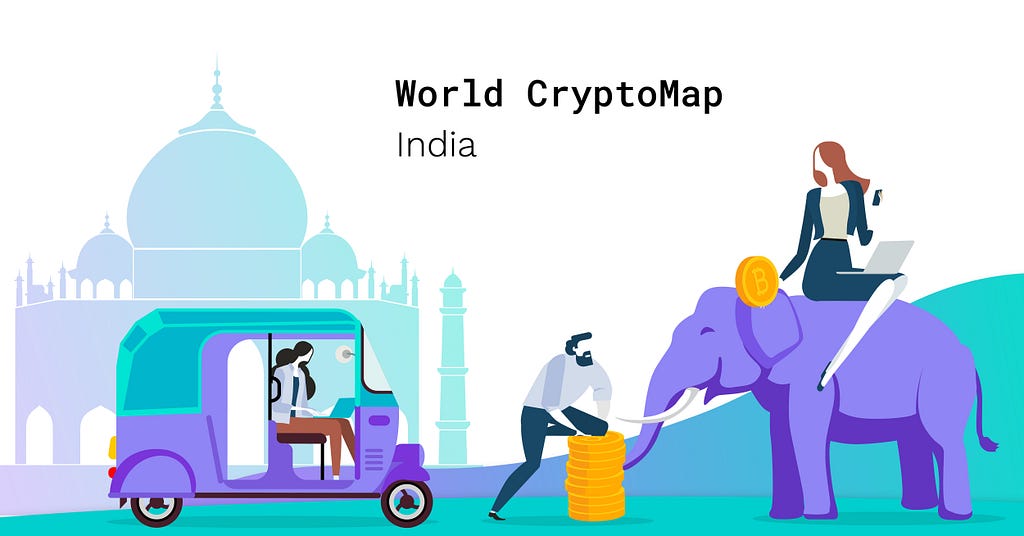Latest news about Bitcoin and all cryptocurrencies. Your daily crypto news habit.

Has it just come up with a promising use case for cryptocurrency, or made another step to bury it? It’s getting really hard to understand which direction India is moving towards. After almost proclaiming itself crypto-friendly, the State cracks down on exchanges. Reserve Bank of India prohibits credit institutions from offering services to companies operating in the virtual currency sector, while the government is seriously considering making cryptocurrency a means of payment for subway rides.
Let’s unfold our World Crypto Map and take a look at the Indian Cryptocurrency Market and its list of controversies.
India’s Interest in Cryptocurrency
India is one of those countries that was quick to start adopting crypto. As early as 2012, small scale Bitcoin transactions were already taking place within the States. By 2013, a few businesses, including bars and restaurants, began to accept BTC payments. The crypto movement followed up with new exchanges springing up online: BtcxIndia, Unocoin, Coinsecure, Zebpay, Koinex…
Thanks to that, the crypto market in India has grown from its modest level in 2013 to what it is today. It is estimated that India has over 5 Million active traders. Reports by Indian cryptocurrency exchange Coindelta indicate that daily trading volumes in May were set at around $75 million.
The Indian crypto regulatory climate
In 2018 the Reserve Bank of India (RBI) has started pushing the crypto ecosystem into the corner. Earlier this year it cracked the whip on the exchanges, asking banks to wind up all business relations with them, as well as crypto traders.
Taking it even further, the RBI has banned all commercial banks and regulated lenders from facilitating crypto transactions. As a result, crypto-trading volume in India has plummeted so the exchanges had to reconsider operations. Some of them are now shifting out of the country. Others are deploying alternative mechanisms for deposits and withdrawals.
The two faces of India’s regulators
Despite the ongoing banking ban, India’s government is seriously considering making cryptocurrency a means of payment for metro cards and airline tickets. A senior official from India’s finance ministry said: “Our committee is examining if crypto tokens can be used to replace smart cards, such as metro cards in the public sector to start with. Similarly, in the private sector, it can be used in loyalty programs such as air miles where its use is limited to buying the next ticket and can’t be converted into money.”
The fresh initiative from the Indian government has been met with enthusiasm by some members of the crypto community. Being the second most populous country in the world with over 1.3 billion inhabitants, India could have a powerful effect on the industry in terms of crypto adoption.
The judgment day is coming
Here’s the twist: surprisingly, the RBI has urged the Supreme Court to regulate cryptocurrencies, admitting that instead of a ban it would be better to have laws. According to local media outlets, the draft of the proposed cryptocurrency legislation has already been completed. And even though the Court has not confirmed what exactly is going to be enforced, newspapers report there are no more extreme measures coming.
To ban or not to ban: India’s controversial approach to crypto was originally published in Hacker Noon on Medium, where people are continuing the conversation by highlighting and responding to this story.
Disclaimer
The views and opinions expressed in this article are solely those of the authors and do not reflect the views of Bitcoin Insider. Every investment and trading move involves risk - this is especially true for cryptocurrencies given their volatility. We strongly advise our readers to conduct their own research when making a decision.
